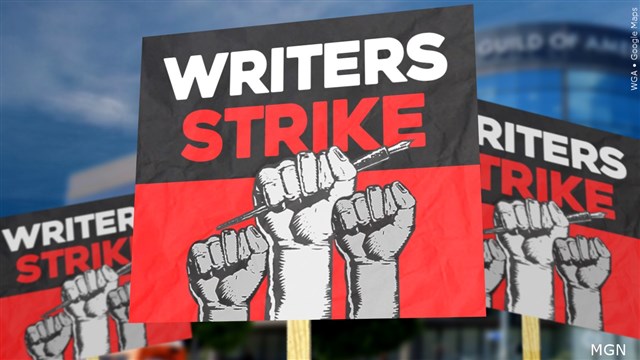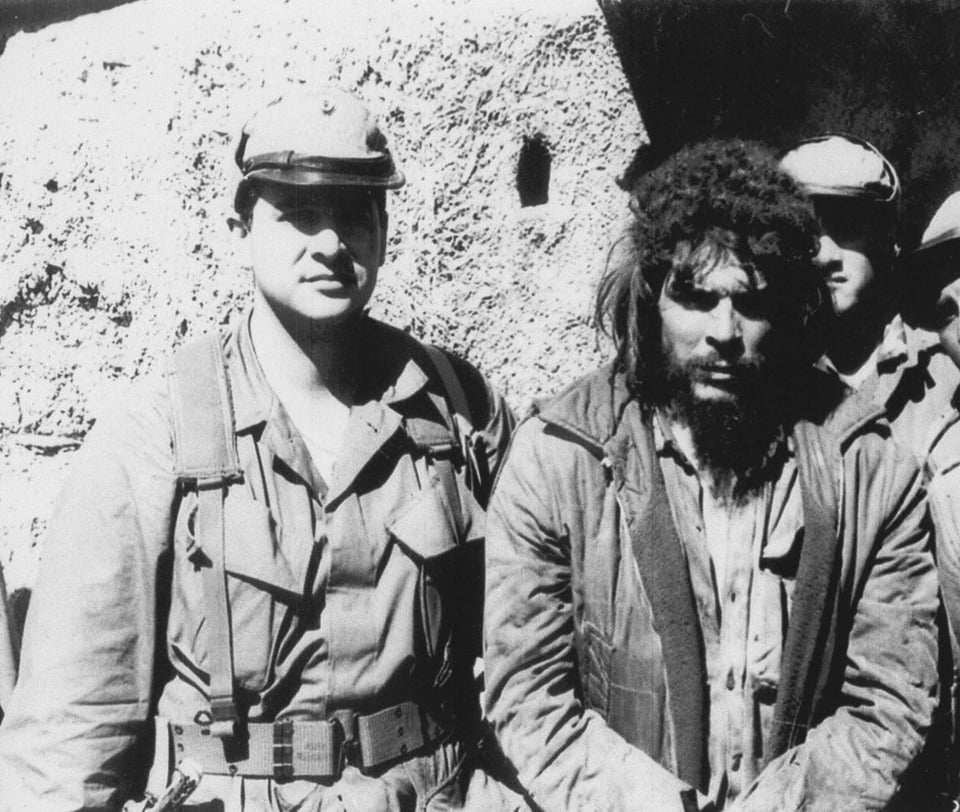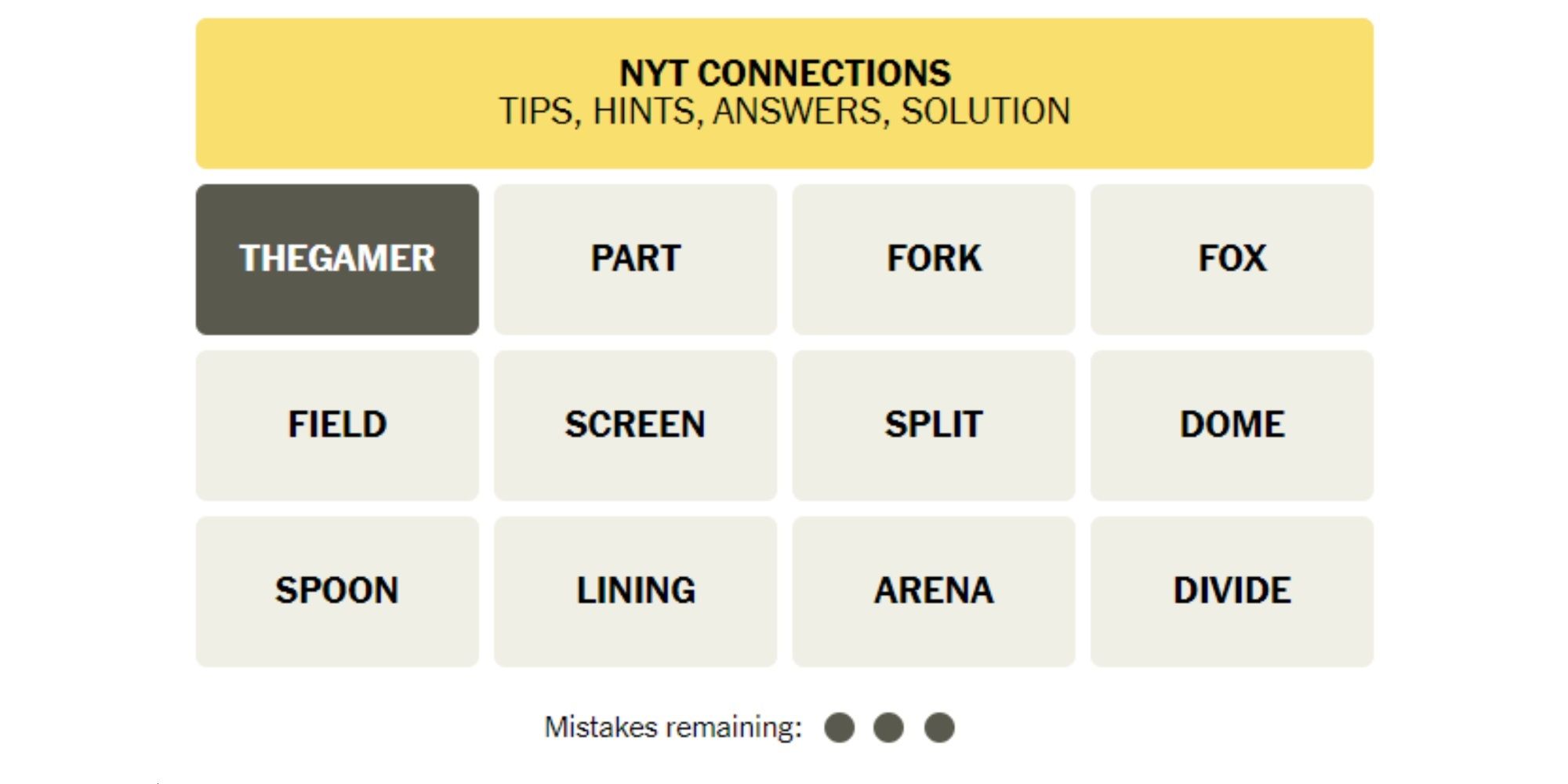Actors And Writers Strike: Hollywood Faces Unprecedented Production Shutdown

Table of Contents
The Core Issues Fueling the Strike
The current Hollywood strike represents a culmination of long-standing grievances regarding fair compensation, the impact of emerging technologies, and working conditions. These key issues have pushed both the WGA and SAG-AFTRA to take this drastic measure.
Fair Wages and Residuals in the Streaming Era
The shift from traditional television models to streaming services has fundamentally altered the landscape of compensation for writers and actors. The lucrative residual payments, once a significant source of income for actors and writers from reruns and syndication, have drastically diminished in the streaming era. Streaming platforms often operate under opaque viewership data policies, making it difficult to assess the success of a show and, consequently, fair compensation.
- Lack of transparency in streaming viewership data: The lack of readily available and verifiable data on streaming viewership makes it challenging to negotiate fair residuals based on actual performance.
- Inadequate compensation for streaming projects: Streaming deals often offer significantly lower upfront payments and minimal residuals compared to traditional television contracts.
- Demand for increased residuals based on streaming performance: Unions are fighting for a fairer share of the profits generated by streaming platforms, demanding a system that better reflects the true value of their creative contributions.
Concerns Regarding AI and its Impact on Creative Work
The rise of artificial intelligence (AI) in the entertainment industry presents another significant concern for both writers and actors. The fear of AI replacing human creatives is a palpable anxiety, with concerns extending to the ownership and copyright of AI-generated content. Both unions are demanding safeguards to protect their creative work from AI exploitation.
- Fear of AI replacing human creatives: AI-powered tools capable of generating scripts and creating digital likenesses raise concerns about job security and the devaluation of human creativity.
- Concerns over ownership and copyright of AI-generated content: Questions surrounding the ownership of content generated with AI tools require clear guidelines and legal frameworks.
- Demand for safeguards to protect creative work from AI exploitation: Unions are pushing for regulations that ensure human creatives retain control and ownership over their work, preventing the unauthorized use of AI to replicate or replace their contributions.
Working Conditions and Exploitation
The demanding nature of the entertainment industry often translates to grueling working conditions for both actors and writers. Long hours, inadequate rest periods, and intense pressure are common complaints. The strike seeks to address these issues and improve working conditions across the board.
- Demand for improved working conditions: The unions are advocating for reasonable working hours and a more humane work environment.
- Shorter working days: The goal is to establish fair working schedules that allow for adequate rest and prevent exploitation.
- Better health and safety regulations on set: Improved safety protocols and standards are essential to ensure the well-being of actors and crew members.
The Impact of the Strike on the Entertainment Industry
The actors and writers strike has sent shockwaves through the entertainment industry, resulting in widespread disruption and significant economic consequences.
Production Delays and Cancellations
The strike has brought numerous film and television productions to a complete halt. Major projects, both big-budget studio films and smaller independent productions, have experienced significant delays or outright cancellations. Post-production work has also been severely impacted, leading to further delays in release schedules.
- List of delayed or canceled projects: Numerous high-profile projects have been affected, including major network television series and anticipated film releases. (Specific examples would be added here with links to relevant news articles for SEO purposes).
- Impact on post-production work: The editing, sound mixing, and visual effects processes are often dependent on the availability of actors and writers for additional work or approval, creating further delays.
- Delays in release schedules for upcoming films and shows: Consumers can expect delays in the release of numerous anticipated films and television series.
Economic Fallout and Job Losses
The economic fallout from the strike extends far beyond the actors and writers themselves. Crew members, support staff, caterers, and numerous other professionals working within the industry are facing significant job losses and financial hardship. Local businesses that rely on the economic activity generated by film and television productions are also suffering.
- Estimates of financial losses: Analysts predict substantial losses in revenue for studios, networks, and related businesses.
- Impact on tourism related to filming: Many locations rely on film productions for tourism revenue and job creation. The strike significantly impacts this revenue stream.
- Job losses in related industries: The ripple effect extends to businesses supplying services to the entertainment industry, resulting in job losses across various sectors.
The Impact on Streaming Services
Streaming services are significantly impacted by the strike, facing delays in the release of new seasons and original content, which may lead to subscriber churn and reduced advertising revenue.
- Delayed release of new seasons and shows: Streaming platforms are unable to release planned new content, impacting their programming schedule.
- Potential subscriber churn: Subscribers may cancel their subscriptions due to a lack of fresh content.
- Impact on advertising revenue: Delays in new content can negatively affect advertising revenue, especially for services relying on ad-supported tiers.
Potential Resolutions and Future Implications
The ongoing negotiations between the unions and the AMPTP (Alliance of Motion Picture and Television Producers) are crucial in determining the future of the entertainment industry.
Negotiations and Potential Outcomes
The key sticking points in the negotiations include residuals, AI usage, and working conditions. Reaching a compromise that addresses the concerns of both sides is essential to ending the strike and restoring normalcy to Hollywood.
- Key sticking points in negotiations: The primary areas of contention include the payment models for streaming content, the use of AI in creative work, and the regulation of working conditions.
- Possible compromises on residuals: Finding a system for paying residuals that reflects the success of streaming shows is a significant challenge.
- AI usage: Establishing clear guidelines and restrictions on the use of AI in writing and acting is vital.
Long-Term Impacts on the Entertainment Industry
The outcome of this strike has the potential to reshape the entertainment industry significantly, impacting compensation models, AI regulation, and union power.
- Potential changes in compensation models: The strike could lead to the development of new models for compensating actors and writers, potentially including fairer distribution of streaming revenue.
- Increased regulation on AI use: The concerns raised by the strike might push for increased government regulation on the use of AI in creative fields.
- Strengthened union power: A successful strike could lead to an increase in union power and influence, improving the collective bargaining power of actors and writers.
Conclusion
The ongoing actors and writers strike is an unprecedented event with far-reaching consequences for the entertainment industry. The core issues of fair wages, AI usage, and working conditions highlight the need for significant changes in how the industry operates. The outcome of these negotiations will not only determine the immediate future of Hollywood but also reshape the landscape of filmmaking and television production for years to come. Stay informed about the developments in the actors and writers strike and its impact on your favorite shows and movies. Understanding the complexities of this Hollywood strike is crucial for navigating the changing dynamics of the entertainment industry. Keep checking back for updates on this critical SAG-AFTRA strike and WGA strike.

Featured Posts
-
 Why Colin Jost Earns Less Than Scarlett Johansson Examining Hollywood Pay Gaps
May 19, 2025
Why Colin Jost Earns Less Than Scarlett Johansson Examining Hollywood Pay Gaps
May 19, 2025 -
 Fsu Shooting Victims Father A Cuban Exile And Former Cia Operative
May 19, 2025
Fsu Shooting Victims Father A Cuban Exile And Former Cia Operative
May 19, 2025 -
 How To Watch Ufc 313 Full Fight Card And Ticket Information
May 19, 2025
How To Watch Ufc 313 Full Fight Card And Ticket Information
May 19, 2025 -
 Analyse Passagiersaantallen Maastricht Airport Begin 2025
May 19, 2025
Analyse Passagiersaantallen Maastricht Airport Begin 2025
May 19, 2025 -
 Uber Stock Soars Analyzing The April Double Digit Increase
May 19, 2025
Uber Stock Soars Analyzing The April Double Digit Increase
May 19, 2025
Latest Posts
-
 Nyt Connections Game Hints And Solutions For March 17 645
May 19, 2025
Nyt Connections Game Hints And Solutions For March 17 645
May 19, 2025 -
 Solve Nyt Connections Today Puzzle March 5 2025 Hints And Solutions
May 19, 2025
Solve Nyt Connections Today Puzzle March 5 2025 Hints And Solutions
May 19, 2025 -
 Todays Nyt Connections Hints And Answers April 15 Puzzle 674
May 19, 2025
Todays Nyt Connections Hints And Answers April 15 Puzzle 674
May 19, 2025 -
 Nyt Connections Puzzle Answers For March 17th Puzzle 645
May 19, 2025
Nyt Connections Puzzle Answers For March 17th Puzzle 645
May 19, 2025 -
 Nyt Connections Today Answers For March 5 2025
May 19, 2025
Nyt Connections Today Answers For March 5 2025
May 19, 2025
